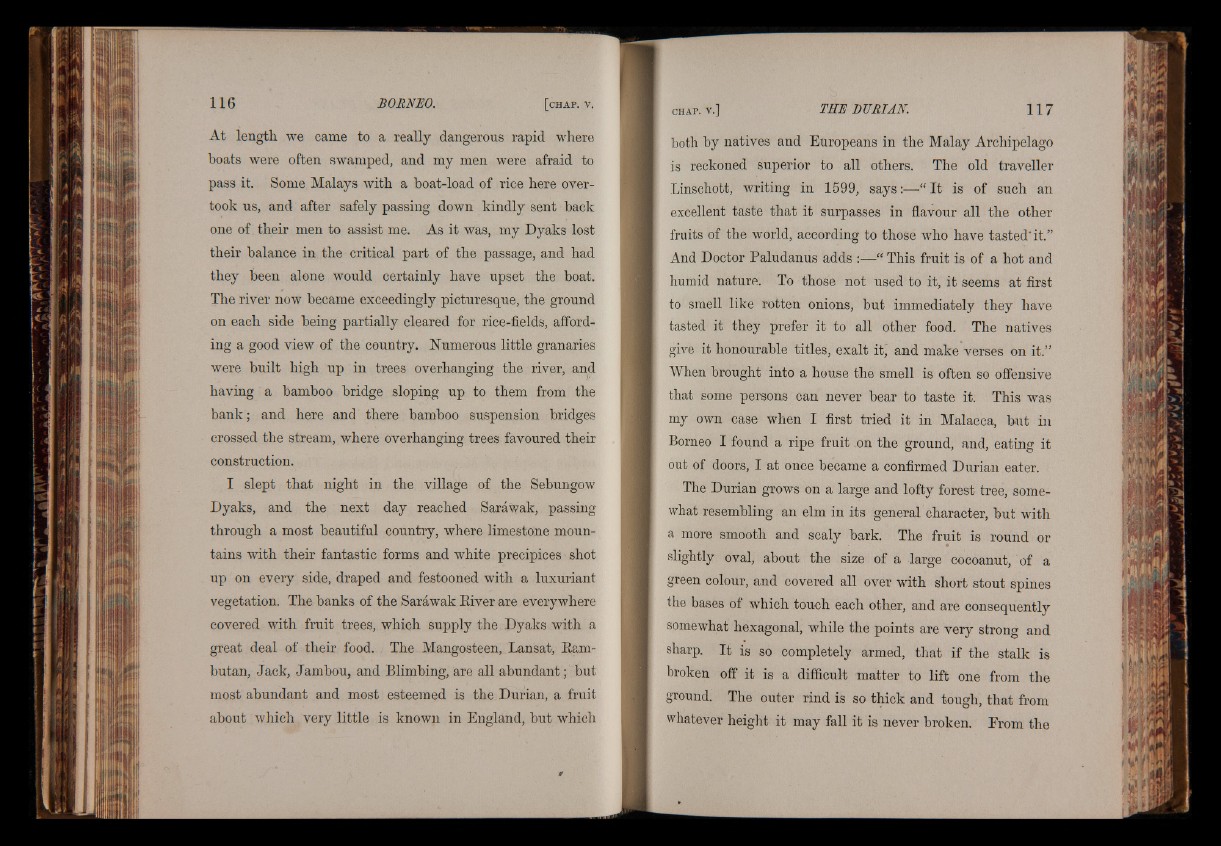
At length we came to a really dangerous rapid where
boats were often swamped, and my men were afraid to
pass it. Some Malays with a boat-load of rice here overtook
us, and after safely passing down kindly sent hack
one of their men to assist me. As it Was, my Dyaks lost
their balance in the critical part of the passage, and had
they been alone would certainly have upset the boat.
The river now became exceedingly picturesque, the ground
on each side being partially cleared for rice-fields, affording
a good view of the country. Numerous little granaries
were built high up in trees overhanging the river, and
having a bamboo bridge sloping up to them from the
bank; and here and there bamboo suspension bridges
crossed the stream, where overhanging trees favoured their
construction.
I slept that night in the village of the Sebungow
Dyaks, and the next day reached Sarawak, passing
through a most beautiful country, where limestone mountains
with their fantastic forms and white precipices shot
up on eveiy side, draped and festooned with a luxuriant
vegetation. The banks of the Sarawak River are everywhere
covered with fruit trees, which supply the Dyaks with a
great deal of their food. The Mangosteen, Lansat, Ram-
butan, Jack, Jambou, and Blimbing, are all abundant; but
most abundant and most esteemed is the Durian, a fruit
about which very little is known in England, but which
both by natives and Europeans in the Malay Archipelago
is reckoned superior to all others. The old traveller
Linschott, writing in 1599, says:—“ It is of such an
excellent taste that it surpasses in flavour all the other
fruits of the world, according to those who have tasted* it.”
And Doctor Paludanus adds :—“ This fruit is of a hot and
humid nature. To those not used to it, it seems at first
to smell like rotten onions, but immediately they have
tasted it they prefer it to all other food. The natives
give it honourable titles, exalt it,' and make verses on it.”
When brought into a house the smell is often so offensive
that some persons can never bear to taste it. This was
my own case when I first tried it in Malacca, but in
Borneo I found a ripe fruit .on the ground, and, eating it
out of doors, I at once became a confirmed Durian eater.
The Durian grows on a large and lofty forest tree, somewhat
resembling an elm in its general character, but with
a more smooth and scaly bark. The fruit is round or
slightly oval, about the size of a large cocoanut, of a
green colour, and covered all over with short stout spines
the bases of which touch each other, and are consequently
somewhat hexagonal, while the points are very strong and
sharp. It is so completely armed, that if the stalk is
broken off it is a difficult matter to lift one from the
ground. The outer rind is so thick and tough, that from
whatever height it may fall it is never broken. From the